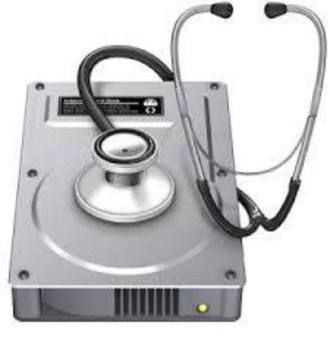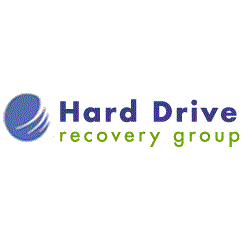|
Millions of people use a computer on a daily basis for various reasons. With the digital age, it also means that most of our data have also gone digital and you need to keep up or else you will stagnate. It is common knowledge that the majority of computer users use a Windows PC and not Mac devices from Apple mainly because they are more cost-effective and still offer all if not the same functions as what you can usually find in an Apple device.
(Via: https://mspoweruser.com/more-than-half-of-company-windows-pcs-now-on-windows-10/) This is also a practical move for these companies to use an OS that is current and supported by Microsoft considering the number of online threats we all face every single day. You’ll have peace of mind knowing that counter-measures can be taken in the face of an attack or hacking because Microsoft will back you up. Many companies had to learn the hard way when they faced such attacks in recent years where computers were still running on Windows XP and Windows 7, so the damage hurt them a lot in terms of finances and production.
(Via: https://www.ubergizmo.com/2018/10/windows-10-mirror-android-phone-on-computer/) Since all computer users are smartphone users now and there are also older people who have no computer skills whatsoever actually have smartphones because it is not only the norm but for convenience too. There are slight variations between the smartphone and computer experience but Microsoft is aiming to make a seamless experience for the Windows 10 OS whether you use a smartphone or a computer because of its mirror effect dubbed as the “Your Phone” feature. It was already included in the October Windows 10 update and is readily available among Android smartphone users. It translates to a computing experience that is unlike any other since you are essentially able to do everything you do on your Windows 10 computer on your smartphone. Hopefully, it will be able to save you from the woes of data loss because you can now access files on both devices. But while this is still a novelty, better arm yourself with data recovery knowledge to help you better deal with data loss. Expert services like https://www.harddriverecovery.org/pricing.html and https://www.harddriverecovery.org/raid-pricing.html can save a life in the unfortunate circumstance that your device fails. Windows 10 Domination was originally published to www.harddriverecovery.org via https://www.harddriverecovery.org/blog/windows-10-domination/
0 Comments
To say that data is the new oil is an understatement. It certainly makes the world go round on a virtual level and runs almost all businesses and organizations in every part of the globe. Rarely would you come across a person who does not contribute to this pool of data with the popularity of social networking sites and even with the conversion of most human data into digital format for ease of access and distribution into various channels and platforms.
There is one big problem, though, and it involves data privacy and security especially that many people have access to the private information of individuals even without their consent.
(Via: http://thefutureofthings.com/12383-importance-data-recovery/) We can’t ignore the power of data anymore whether big or small but along with it comes the challenges brought about by data loss. Like with any other device, they can wear out and malfunction over time. There are also instances when they fail because of other reasons outside of your control like mechanical failure or even by accident you may lose certain if not all of your stored files. We thrive today because of data and its absence can be significantly felt especially for those who failed to secure a backup. Data recovery is your last resort and your last grain of hope to get your lost data back. There is a cliché, though. It is pricey and you can’t always be sure that you’ll get it back because there are a lot of things that can go wrong no matter how careful you are.
(Via: https://www.itproportal.com/features/going-the-diy-data-recovery-route-tips-and-warnings/) Some try to DIY it to save money but it is not advised since data recovery have strict requirements. For example, it should be done in a clean room environment because hard drive parts are sensitive. Only trained experts should also do it because they have an extensive technical knowledge and skills on data recovery, so you have a higher chance of recovering your lost data with their professional help. Data is so precious so one has to be extra careful with it. Not all the time you can replace it and the added pressure of time make its recovery even more stressful for you. When faced with data loss, choose a reputable firm with data recovery services that has proven results with previous clients who successfully recovered their data. Data loss is not only a problem faced by ordinary computer users. Companies and organizations using big servers are also at risk. They can better deal with it with the help of services like https://www.harddriverecovery.org/raidcenter/dell_poweredge_data_recovery.html and https://www.harddriverecovery.org/raidcenter/hp-proliant-data-recovery.html depending on the type of server involved. Get your data back and protect yourself from facing the same problems in the future by upgrading your device security and always backing up your files. The article The Power Of Data Recovery is courtesy of HDRG via https://www.harddriverecovery.org/blog/the-power-of-data-recovery/ Hard Drive Recovery Group Discusses RAIDs MacOS Mojave and Identity Theft In Its Latest Blogs4/17/2019 As part of its core mission to educate customers on data storage technologies and tips, Hard Drive Recovery Group's latest blog post tackles RAID arrays - what they are, and how this powerful technology helps businesses across North America. "While probably near 100% of business and government employees access files from a RAID array on a server of some kind each and every day, few people understand the technology behind them," said Maureen Davies, spokesperson for Hard Drive Recovery Group. "This is a technology that is now starting to age, and yet still is one of the most powerful enterprise storage systems available today." RAID, or Redundant Array of Independent Disks, is a multiple disk array storage style that is typically classified by levels such as RAID 0 (which offers no redundancy, but added performance), RAID 1 (which offers better data security due to redundancy), and the most popular level, the RAID 5 (which offers both speed AND redundancy). These systems are made for heavy duty, long term use and typically operate smoothly for several years. They do, sadly, have their faults. "RAID 5 and 6 and 10 arrays offer a fantastic degree of redundancy as well as performance, but they are definitely not invincible," said Davies. "Most IT administrators are aware of this, but if more than a single drive fails in the array, professional data recovery is typically necessary." Another blog post, entitled MacOS Mojave for Beginners, explains the operating system update procedure, while offering important tips to Mac users that may be new to the process. "Although it mostly goes without saying, backing up your computer hard drives any time you are considering upgrading your operating system is just good business," said Davies. "Operating system upgrades are notorious for going wrong in the Windows world, and there's really no reason why MacOS upgrades are any different." The post also discusses the newer Group FaceTime feature, which allows groups to hold video calls, something that was not available before in the MacOS software. A third post, entitled, "How Identity Thieves Gain From Data Loss", discusses the dark side of the Internet, a multi-billion dollar industry known as data brokering. These companies tend to be faceless, shadowy organizations which collect consumer data and then repackage it and sell it to large corporations - often without the permission of the user. "There are certainly a lot of data brokers making a lot of money selling off data they acquire from means that are not entirely above board," said Davies. "The real trick in terms of safeguarding your data, though, are the trojan horse data breaches from companies you trust, which often use large Terms and Conditions agreements to fool the average user." The data brokering industry has upped its game over the past 10 years, with the public only recently discovering that all of their personal data, including phone call times, GPS location data and even emails are currently being mined by large companies like Facebook and Google. It's a trend that is likely to continue. "Unfortunately for the larger social media companies out there, people are beginning to catch on to the fact that everything they do is being traced and saved somewhere on a database," said Davies. "The larger tech companies have thus far avoided regulation of their use of user data, but considering many have almost 'Public Utility'-status, that may change soon." While the article does discuss how identity thieves can create real difficulties and problems for their victims, the reality is that when it comes to personal data, it is often the user's most trusted website, social network or even smart phone that may be getting away with virtually everything. "Getting users to read the Terms and Conditions is not really going to help most people, as they are typically deliberately constructed to be long, hard to read and confusing," said Davies. "The basic point every user concerned needs to understand is that if they carry a cell phone and use social media apps, they are being tracked." Hard Drive Recovery Group offers safe and fully secure data recovery for companies and users that demand a high level of privacy. from Hard Drive Recovery Group What is RAID? If you’re not an IT person, you probably don’t know a lot about it. However, one thing is for sure. You’ve probably heard about it. If you’re working in an office where massive data are stored in servers, you’ve probably come across the RAID acronym.
(Via: https://www.cnet.com/how-to/backups-act-like-your-business-depends-on-them) Companies rely a lot on RAID systems. For starters, they're very cost effective. Secondly, they can help lessen the impact of a data loss.
(Via: https://simple.wikipedia.org/wiki/RAID) So, what does the acronym, RAID, stand for. Well, it stands for Redundant Array of Inexpensive Disks. Originally, it stood for Redundant Array of Inexpensive Disks. This particular data storage technology basically uses multiple disks or drives to achieve better reliability and performance.
(Via: https://www.computerhope.com/jargon/r/raid.htm) There are various RAID levels. Each RAID level is defined by the way the disks are joined.
(Via: https://simple.wikipedia.org/wiki/RAID) Here are two examples of RAID levels. RAID 0 consists of two drives or more. What this level does is that it strips data across all of the drives. By doing that, you are able to maintain your capacity and at the same time, double the read and write performance. Unfortunately, you will lose some data in case one of the drives fail. RAID 0 is ideal if you back up your data regularly. RAID1 is more reliable since it can retain data in case one of the two drives fail. As you can see, the various RAID levels provide some kind of safety net in case of hardware failure.
(Via: https://www.pcmag.com/article2/0,2817,2370235,00.asp) So how reliable are RAID-enabled systems? According to https://www.harddriverecovery.org/raidcenter/raid-drive-failure.html, they are very reliable. As a matter of fact, they can operate smoothly for years. However. RAID-enabled systems are not perfect. You would also have to consider the mechanical nature of their main components. They can also be prone to failure in the future. Another thing to consider is the impact of Undetected Disk Errors (UDEs) in RAID-enabled systems.
Considering the possible failures of RAID systems, you would have to rely on experienced RAID data recovery engineers. To find them, you can check out https://www.harddriverecovery.org/raid-data-recovery.html. RAID Explained is republished from http://www.harddriverecovery.org via https://www.harddriverecovery.org/blog/raid-explained/ All over the world, the number of computer users is growing mainly because most services have gone digital and the public has no choice but to embrace all these advancements just to stay updated. More often than not, someone who owns smartphone or a tablet also owns a computer or a laptop. From students to high-ranking professionals both in public and private organizations need a good working laptop in doing their daily tasks. The elite are usually the first to follow technology and try new concepts, so it is no surprise that most of them are loyal Apple users.
(Via: https://www.cnet.com/how-to/how-to-prepare-your-mac-for-macos-mojave/) Don’t get too excited, though, because Apple has a disclaimer. Not all of their devices are compatible with the new operating system update, so better check out the first article to find out the corresponding devices who can make the great leap this year with the new MacOS Mojave. Like with any other update, it will require ample storage so better clear up some space to make way for the new OS on your device. Making backup files is also a practical thing to do because you don’t want to lose any important file prior to making the update.
All changes have flaws especially that the brilliant minds from Apple are still making tweaks here and there in response to reactions from existing users when they made the switch. Some of the new upgrades include a group Facetime feature that some users are looking forward to especially the ones who often calls family and friends locally and abroad. Considering that up to 32 people can join Facetime calls as a group can really come in handy even for businesses where meetings are often conducted to update everyone of progress in certain projects and tasks. 70 new emojis will also be added to the Apple emoji line to help Apple computer users better express their feelings using these cute emoticons. All changes are exciting because we never really know what is in store for us but there are some things that actually never change. Even if you are using a more expensive and fancier Macbook Pro, for instance, it does not mean that you are totally immune to hard drive failure and data loss. If that is the case, orient yourself to these common problems such as https://www.harddriverecovery.org/clean_room.html and https://www.harddriverecovery.org/blog/hard-drive-failure-recovery-three-major-user-mistakes/ because data recovery is a sensitive matter and require a special environment where it should be done and highly technical knowledge and expertise to actually get it done too. The following blog article MacOS Mojave For Beginners was initially published to HDRG Blog via https://www.harddriverecovery.org/blog/macos-mojave-for-beginners/ As part of efforts to ensure that each and every Hard Drive Recovery Group customer is an educated customer, the company's newest blog posts address common file system issues, as well as service options that many clients do not know about. "Having heard from many clients that simple information on hard drives is very difficult to find, we decided to react," said Maureen Davies of Hard Drive Recovery Group. "Rarely do we find a customer that understands all of the aspects of their own computer's storage system, so being able to point out basic concepts makes our service more educational." Addressing one of the most common data recovery requests with "Deleted Files, Where Do They Go?", the PC's Recycle Bin is looked at in depth as really the heart of most computers' disposal system. Because many data recovery customers assume they have an emergency data loss situation simply because they have accidentally deleted a file, it is important to understand that Recycle Bin files can almost always be restored. "What is interesting about many Windows and Mac customers is that they frequently do not know that you can quickly and easily restore files that you want back to their original location," said Davies. "In fact, even in cases where the Recycle Bin has been emptied, it is usually quite possible to retrieve those files as well." The post entitled "Remote Data Recovery: Is It Right For You?", meanwhile, documents a process that is not often considered by most consumer-level hard drive recovery customers. While certainly using data recovery software is very common knowledge to most users, Remote Data Recovery can allow the customer to avoid packing and shipping their hard drives and instead let an expert login and attempt the recovery remotely. "While remote data recovery isn't a very common service, and is typical only for those with major enterprise servers or multi drive RAID arrays, it can help the user that is pressed for time or is a great distance from the Hard Drive Recovery Group clean room," said Davies. "We have seen very high quality restoration results from most remote data recoveries, but of course the conditions must be correct for it to work." Finally, the post "Data Recovery Cost: Is It Worth It?" tackles one of the most difficult issues for North American users - is their data worth paying the cost for professional data recovery services, or is it better to simply start again. "Despite the economic projections that economists and others are making, the fact remains that less than 60% of Americans can afford a $1000 emergency, which means that a major hard drive failure that involves a lot of lab time is something they cannot afford," said Davies. "It's unfortunate, but many people these days are realizing they have to make a choice - keeping their car running, or saving a few years of family photos." While Hard Drive Recovery Group has always offered free evaluations for any hard drive crash or failure, the end decision on whether to recover or abandon the drive is always in the customers' hands. So while catastrophic data loss issues have decreased for users pretty much across the board, the economic resources for which to pay for those increasingly rare failures is often not there. "There's no doubt in anyone's mind that hard drive and solid state drive technologies are getting better and better by the year," said Davies. "But, no matter how you look at it, data storage technologies are still mechanical devices that fail after a certain amount of operation time. While you can certainly do your best to run from a catastrophic drive failure, the inevitability of them mean you cannot hide." As a result of this drive failure inevitability, Davies and Hard Drive Recovery Group continue to educate customers about hard drive maintenance and backup - the one true solution to ensure users never have to contact a professional for hard drive recovery. "When it comes to your data, being prepared is always the absolute best way," said Davies. "Backing up is easy to do, but making it part of your routine is where the difficulties arise." from Hard Drive Recovery Group Data loss is dangerous. It’s even more dangerous if the data loss consists of some very personal information. More often than not, they do. Pieces of information like your email address, date of birth, physical address, Social Security Number, passwords, and even family photos are just a few of the pieces of information that make up your personal data. When you lose your personal data, those pieces of information go with them. That could be very dangerous. Your personal data is very valuable. They’re valuable to huge companies that rely on consumer behavior for profit. That’s pretty much all of the companies that exist right now. These huge companies rely on data brokers to get all the information they need for marketing purposes, to say the least.
(Via: https://www.webfx.com/blog/general/what-are-data-brokers-and-what-is-your-data-worth-infographic) With data brokering becoming a multi-billion-dollar industry, you probably can’t help but wonder how much your personal information is actually worth. Well, here goes.
(Via: https://www.webfx.com/blog/general/what-are-data-brokers-and-what-is-your-data-worth-infographic) It’s important to note that data brokers are able to gather pieces of information with the consent of the consumer. So, there’s no data loss since consumers share their data freely. Sure, the consumer can always refrain from sharing their personal data but that’s not usually the case. As it is, shared data is already fueling a multi-billion industry, what more lost or stolen data? There are serious repercussions of losing personal information. One of which is identity theft. If you think identity theft isn’t real, well, it is. Identity thieves actually steal personal information. They either sell it or use it to commit a crime. It’s very easy for them to get away with a crime if they’re using somebody else’s identity.
(Via: https://www.consumer.ftc.gov/articles/0271-warning-signs-identity-theft) The best way to take care of your personal information is to avoid data loss. Yes, you can also avoid sharing them. There’s just too much personal information that can be retrieved from lost or shared data. Identity thieves can easily make use of a piece of information to know more about you. Admit it. These days, that’s not hard to do.
Here’s a scary thought. Identity thieves don’t really have to rely on data loss. They’re very crafty people that they can easily steal personal information. Any kind of lost or shared data just makes it a lot easier for them. It is a fact that they gain a lot from data loss. So, what can you possibly do to protect yourself from data loss? It’s easier said than but you have to recover your data as soon as possible. For a fast and safe data recovery, you can check out https://www.harddriverecovery.org/data-recovery-services.html. If you’re able to recover your data right away, you’ll know what kind of information was lost. From there, you can take various steps to protect yourself from identity theft. The following post How Identity Thieves Gain From Data Loss was initially published to The Hard Drive Recovery Group Blog via https://www.harddriverecovery.org/blog/data-loss/ It’s a typical day. You’re typing away to get work done. Things are going smoothly because you have all the data that you need in your computer. It’s just a matter of putting everything together to get the work done. Then suddenly, you notice you’re missing some data. You’re getting worried. Nonetheless, you’re hoping that everything is okay but it’s not. You’re definitely missing some very important data. How could something like this happen to you? Well, truth be told, data loss is very real. It happens to everybody. That includes you.
(Via: https://www.lifewire.com/ways-to-prevent-data-loss-3540224) So, how can you actually prevent data loss from happening. The answer is, you can’t. Data loss is inevitable. That’s a fact. You’re bound to lose some data at some point. However, you could recover your lost data from your backup.
(Via: https://www.howtogeek.com/242428/whats-the-best-way-to-back-up-my-computer) The question is, do you back up your files regularly? If you don’t, well, you’re not the only one. Backing up data is such a tedious thing that most people tend to overlook it. That’s pretty much the reason why there’s a big percentage of people who fail to back up their data.
(Via: https://www.upwork.com/blog/2018/03/data-backups-best-practices) It’s very hard to recover data if they’re not backed up. To prevent data loss, you really have to back up files. Either you spend time doing it manually or automatically, it’s really up to you. These days, there are so many ways to back up files.
(Via: https://www.techrepublic.com/article/video-top-5-ways-to-back-up-your-data) Backing up data locally and remotely are the two most popular ways to do it, at least, to prevent data loss. Both can equally do the job well. Of course, backing up locally can take more time than backing up remotely. Remote backup services are usually automatic. It really depends on what suits you. But when it comes to data recovery, it may take some time to get data back from a remote backup service. When you lose data, you want to get it back right away, right? You don’t want to have to wait for hours or even days to get them back. So, what are your options? The good news is that you do have some good options when it comes to data recovery. One good option is to avail of the services of hard drive recovery service provider. Of course, you don’t just choose a service provider randomly. After all, you are trying to recover some critical data, right? Check out the experienced data recovery technicians at https://www.harddriverecovery.org/data-recovery-services.html. These guys are backed up with, at least, 20 years of hard drive recovery experience. They’re exactly what you need when you’re in a desperate position to recover some very important data. The article Can You Really Prevent Data Loss? Read more on: HDRG via https://www.harddriverecovery.org/blog/prevent-data-loss/ |
About usAffordably priced Irvine, CA area data recovery services provider. Specializing in Macs, Dell, HP and IBM RAID recovery and damaged hard drive recovery services. Also offers Mac and laptop data recovery, as well as all forms of physical and logical data recovery. Archives
November 2019
Categories |







 RSS Feed
RSS Feed
